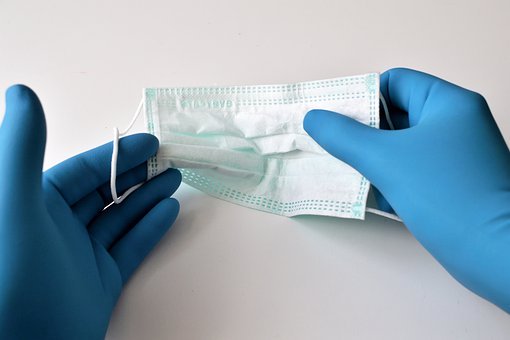- May 28, 2020
- Posted by: Florence
- Categories: COVID-19, Customs, European Union, Exports Control

While the COVID-19 virus is spreading through the European Union like wildfire and most Europeans are confined to their homes, Germany and France finally agreed to withdraw their restrictive measures on transfers (intra-EU) and exports (extra-EU) of medical and protective equipment. This follows the adoption on 14 March 2020 by the European Commission of controls on the export of individual protective equipment. These export controls, the first to target non-military or dual use items, are part of the Commission’s attempt to restore unity between the Member States.
We review in this alert the measures adopted by the EU’s Member States, which are being replaced by new EU-wide instruments; and compare those EU measures to the export controls adopted by the U.S.
The EU’s response to COVID-19
On 4 March 2020 Germany’s so-called emergency task force on the coronavirus epidemic decided to ban the export of many types of medical protection gear, including breathing masks, medical gloves and protective suits (see German Federal Gazette as of 4 March 2020, available at bundesanzeiger.de). There were limited exemptions to the ban including, among others, travellers who export or transfer the relevant products in reasonable quantities for their own use. The decree allowed exporters to apply for a licence in very limited circumstances, including, for example, when products are exported in connection with concerted international aid. All other exports were banned, whether destined for the rest of the EU or third countries.
France requisitioned all stocks of face masks of the types FFP2 and anti-projections masks from national producers and distributors in the public and private sectors as of March 4 2020 and extended the requisition to masks of the types FFP3, N95, N99, N100, P95, P99, P100, R95, R99 and R100 as of March 14 2020. Such measures prevent any export of masks from the French territory.
Understandably, these measures were seen with great suspicion, even anger, by the other Member States, particularly Italy, the first Member State to be hit by the virus and a country in need of such protective equipment.
In the face of this serious challenge to the EU’s single market, on 14 March 2020 the European Commission adopted a regulation making the exportation of certain products to countries outside the EU subject to the production of an export authorisation (Reg. (EU) 2020/402) in order to prevent and remedy the critical situation in the EU. Exports of personal protective equipment are now temporarily subject to an authorisation in order to ensure the Union’s capacity to meet the demand on its territory. Authorisations to export may be authorised under specific circumstances, for specific products, in limited quantity and if the needs of the Member States allow so. Such restrictions apply for six weeks as from March 15 2020.
On 20 March 2020, the Commission announced that it would exempt the EEA countries (Norway, Switzerland, Lichtenstein) and the small dependent countries and territories (including Andorra, Monaco, San Marino and Vatican) from these export controls, and clarified that the UK should still be treated as an EU Member State (see the amending regulation, and the Commission’s guidance note). These changes entered into force on Saturday 21 March 2020.
Urged by the European Commission not to undermine cooperation and solidarity between the Member States, and now having at their disposal an EU tool to restrict exports outside of the Union, France and Germany have now both withdrawn their measures. France withdrew its measure on March 23 2020. Germany first relaxed its export ban on March 12 2020 by allowing intra-European export licences if the export is required to prevent a threat to the supply of vital needs in another Member State of the EU, provided that the vital needs of the German domestic market were ensured despite the export (see bundesanzeiger.de). Following the introduction of the European regulation, Germany finally withdrew its own measures on March 19 2020 (see bundesanzeiger.de), but with the possibility to review the situation regularly.
Thus, the European regulation is now the only instrument restricting the export of personal protective equipment to countries outside the EU.
For more information on the legal and business implications of COVID-19, visit the Reed Smith Coronavirus (COVID-19) Resource Center or contact us at COVID-19@reedsmith.com.
Authors: Yves Melin, Leigh T. Hansson, Bérengère Vigneron & Maria Ottermann
Reed Smith Client Alerts – Published on March 23, 2020

